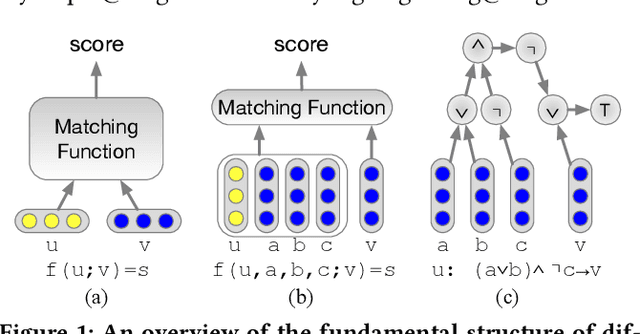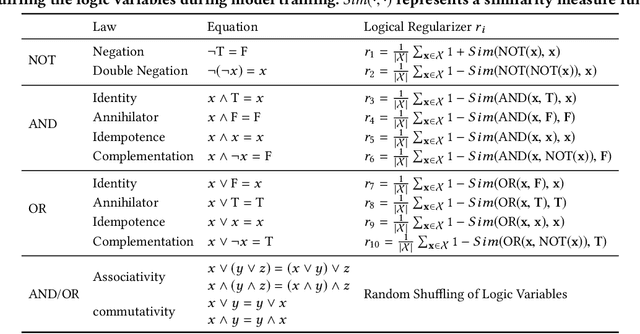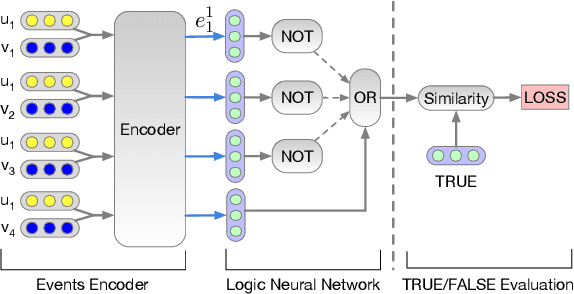Neural Collaborative Reasoning
Paper and Code
Jun 11, 2020



Collaborative Filtering (CF) has been an important approach to recommender systems. However, existing CF methods are mostly designed based on the idea of matching, i.e., by learning user and item embeddings from data using shallow or deep models, they try to capture the relevance patterns in data, so that a user embedding can be matched with appropriate item embeddings using designed or learned similarity functions. We argue that as a cognition rather than a perception intelligent task, recommendation requires not only the ability of pattern recognition and matching from data, but also the ability of logical reasoning in the data. Inspired by recent progress on neural-symbolic machine learning, we propose a neural collaborative reasoning framework to integrate the power of embedding learning and logical reasoning, where the embeddings capture similarity patterns in data from perceptual perspectives, and the logic facilitates cognitive reasoning for informed decision making. An important challenge, however, is to bridge differentiable neural networks and symbolic reasoning in a shared architecture for optimization and inference. To solve the problem, we propose a Modularized Logical Neural Network architecture, which learns basic logical operations such as AND, OR, and NOT as neural modules based on logical regularizer, and learns logic variables as vector embeddings. In this way, each logic expression can be equivalently organized as a neural network, so that logical reasoning and prediction can be conducted in a continuous space. Experiments on several real-world datasets verified the advantages of our framework compared with both traditional shallow and deep models.
 Add to Chrome
Add to Chrome Add to Firefox
Add to Firefox Add to Edge
Add to Edge